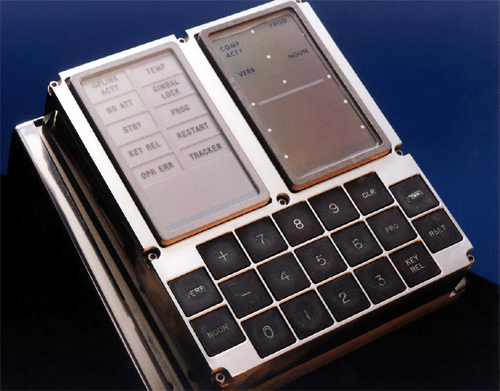Complex installations becoming the norm
Technological developments in the past few decades have been as impressive as they have been disruptive. More than 50 years ago, Apollo 11 flew to the moon with this display and keyboard for the AGC, the Apollo Guidance Computer.

To give you an idea, the clock in an iPhone is 32,600 times faster and can process instructions 120,000,000 times faster.
These advances in technology have contributed to the fact that innovations and technology dominate in certain works – the complex installations. Examples include plants for power generation, water treatment, domestic waste incineration, waste separation, as well as plants for the metal, oil and gas, and chemical industries.
Coordinating construction processes is key
These days, works like these are more about the technology than the construction itself. Installations are increasingly complex and the building contractor’s contribution to the actual construction process is limited. It is no exception for the building contractor to be responsible for only the foundations, the steel and the structural shell such as the facade and roof. However, they may still have a coordinating role, because building contractors have considerable experience with managing projects.
This new way of working in the construction industry has far-reaching implications. The design and implementation of industrial construction projects is often larger and more complex in scope than the mechanical and electrical engineering installations in normal works. Changes to the MTO (Material Take Off), ISOs, P&IDs (Piping and Instrumentation Diagrams) and other design data tend to lead to higher execution costs and more complex technical disputes.
Greater contribution for installation consultants
In addition, these technology-rich modern installations have introduced a whole new framework of terms such as FAT (Factory Acceptance Testing), iFAT (integrated Factory Acceptance Testing), SAT (Site Acceptance test), SIT (Site Integration Test) and so on. It is more important than ever to ensure that the plant components are verified and documented, and extensive and thorough testing procedures now precede delivery. Naturally, installation consultants have much more input than in traditional construction projects.
These special circumstances require knowledge of the new concepts, the terms and conditions and the changed relationship between the construction and installation companies involved and the consultants.
Unusual requirements and different terms and conditions
The construction of works like these is usually subject to different terms and conditions, such as combinations of DBFMO (Design, Build, Finance, Maintain & Operate) or agreements based on the FIDIC contract models, (including Red Book, Yellow Book, Silver Book).
Industrial construction is therefore a special niche in construction, and the same applies to any disputes in this field. Such disputes can be distinguished from regular proceedings in the utility sector by the unusual requirements for the installation engineering. An example of a recent dispute in which Rozemond litigated – and that was reported in the national press on several occasions – involved the installation of a waste separation plant.
Architectural and consulting engineering specialists
We manage our client’s expectations and we respond quickly. We give realistic advice and produce workable agreements and contracts. We aim to prevent and resolve legal problems with a personal touch.







